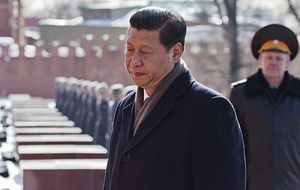Who blinked? Who cares?
China’s decision to remove an oil rig from waters disputed by Vietnam has stirred a considerable degree of attention, almost as much as China’s decision to deploy the oil rig in the first place. Should the move be understood as indicative of a Chinese lack of nerve? Did the policy to intimidate Vietnam fail? Did Vietnamese legal and military efforts force China to “blink” and thus rethink its maritime resource strategy in the region?
As I’ve argued many times in this space and others , policymakers and analysts waste an inordinate amount of time thinking about the reputational costs of their actions. A reputation for resolve supposedly contributes to credibility, which impresses friends and deters potential foes from doing things that we don’t like.
We should remember that the Chinese decision to deploy the oil rig was seen as evidence of a lack of U.S. credibility in international affairs. For some reason, the lack of any commitment on the part of the United States to defending Vietnamese territorial waters against a Chinese incursion was read (along with Obama’s failure to defend the Syrian “red line” and the reluctance of the United States to engage in direct combat with Russia in Ukraine) as a message of American unwillingness to pay costs to defend its critical national interests.
It’s also worth remembering the establishment of the Chinese ADIZ in the East China Sea, a move seen as evidence of American weakness at the time. China’s inability and unwillingness to enforce the ADIZ barely merited comment from resolve-obsessed pundits.
There should be a lesson in this for those who expressed dire concern about the health of the U.S. reputation for resolve a few months ago. Just as with Russia, which has (as of this writing) not responded resolutely to Ukrainian military successes in Donetsk and Luhansk, the worm of the reputation game can turn very quickly.
If we can’t sort out who “blinked” then it’s quite likely that the Chinese and the Vietnamese don’t have a clear grip on whose reputation for resolve has been damaged by this affair.
More importantly, if people can’t agree on who has blinked, who has lost face, and who has demonstrated a reputation for resolve, then there’s little reason for policymakers (or scholars, for that matter) to obsess over reputational concerns. Unlike tanks and nuclear weapons, reputation exists only in the minds of men and women. If we can’t sort through how people make reputational judgments, or who has lost face for what, then reputations are effectively meaningless.
The only way to win this game is not to play.

































